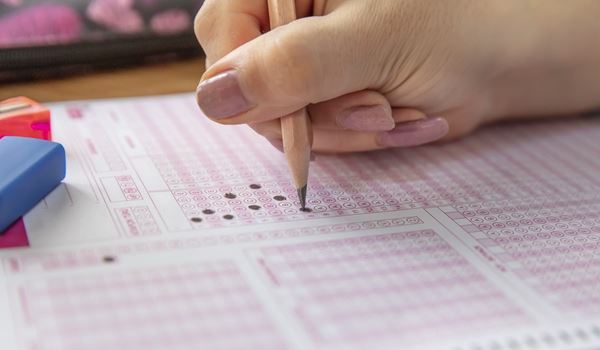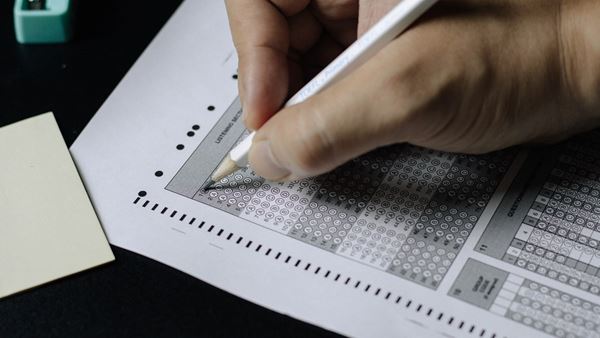University of Michigan’s New Testing Policy: Unfair and Illogical
At Bright Horizons College Coach, we speak with hundreds of families every week about college admission. And every week, we try to put a stressed out family at ease by saying something like, “Don’t worry about the PSAT or PreACT – colleges will never see that score.” Or, “It’s true that the 11th grade PSAT can have implications for merit scholarship consideration, but no college admission officer will ever see it and use it for admission.”
In the too-often opaque admission process here was advice that didn’t start with, “Well, it depends…” or have multiple caveats. And? Families had one less thing to be anxious about. Anytime we can dial down the stress surrounding the college admission process for students and families, that’s definitely a win.
Enter the University of Michigan.
This year, due to COVID-19, many SAT and ACT testing dates have been cancelled, meaning hundreds of thousands of students who had registered to take those rites-of-passage standardized tests in the spring of their 11th grade couldn’t. And looking ahead, who knows which exams, if any, will be available this summer or fall? Many parents may reasonably balk at their teenager sitting in a room with dozens of other students for four hours on a Saturday morning, even if the tests are available.
Most universities have subsequently made the decision to waive their testing requirements. And “most” means the overwhelming majority: the nine-campus University of California system, Stanford, the University of Washington-Seattle, CU-Boulder, UT-Austin, Northwestern, Penn State, and all eight Ivy League schools (Princeton joined the other seven mentioned in the article shortly after). There was quickly a student-centered, near-universal consensus across higher education: It’s a global pandemic. It’s not safe in many places for prospective students to sit for these exams. We’ll waive the requirement.
These universities did not utter a word about the PSAT or PreACT, exams which are traditionally offered to juniors in the fall and which therefore the class of 2021 had already completed. Because of course not; the understanding of students, families, counselors, university admission officers, and even the testing agencies that administer those exams has always been: “These tests are practice.”
Then recently the University of Michigan posted the following on their website:
While not required, if by the deadline a student is unable to sit for and submit an SAT I or ACT test score, they may choose to submit any standardized testing result (PSAT, Pre-ACT, AP’s, etc.).
They are, ex post facto, making the PreACT and PSAT relevant to the college admission process. This is simply not fair to students. It’s like deciding mid-way through a basketball game that the number of free throws made in warm-up should count towards the total score! This policy also robs counselors of their credibility. And most disturbingly (and for the foreseeable future) it puts pressure on students to prepare for the PreACT and PSAT because, well, “You never know, Michigan accepted them that COVID year.”
As someone who worked in undergraduate admission for ten years, I have great sympathy for my friends and colleagues who will face mountains of applications this year without a data point – testing – that many of them have always relied on. I have many thoughts about the role standardized testing should play in admission, but it has played a role, as recently as last cycle. Tens of thousands of applications for admission need to be processed, evaluated, and acted upon, and without standardized test scores, it will unquestionably be a challenge for those admission officers to make decisions.
But that is an admission problem, not a student problem. It will be hard for the University of Michigan to make admission decisions this year on their nearly 65,000 applicants without the SAT or ACT, but it will be hard at UCLA and Penn State, too. Why is Michigan accepting the PSAT and PreACT score when other colleges are not? It’s certainly not because those test scores are reliable predictors of success; unlike the SAT and ACT there are no library shelves full of data correlating the PreACT and PSAT to college-level performance.
By reaching back into a student’s past and saying they’ll take a score from a test which, at the time it was taken, was 100% practice, the University of Michigan is making their admission process easier for themselves, and harder for everyone else. It’s not fair to students and it makes liars out of the counselors who told families the PSAT and PreACT wouldn’t be part of the application package.
The University of Michigan is truly an impressive place, and is one of our nation’s jewels of higher education. It’s an international magnet whose graduates have immeasurably enriched southeast Michigan, the Midwest, and the U.S. And Michigan admission will always get their class. We can only hope that the outcry from colleagues across the country will lead them to reconsider their position.
Basic fairness says that if a test didn’t count for admission at the time it was taken, it shouldn’t retroactively count now. And if schools across the country like Ohio State can find a solution, assuredly they can find one in Ann Arbor.






